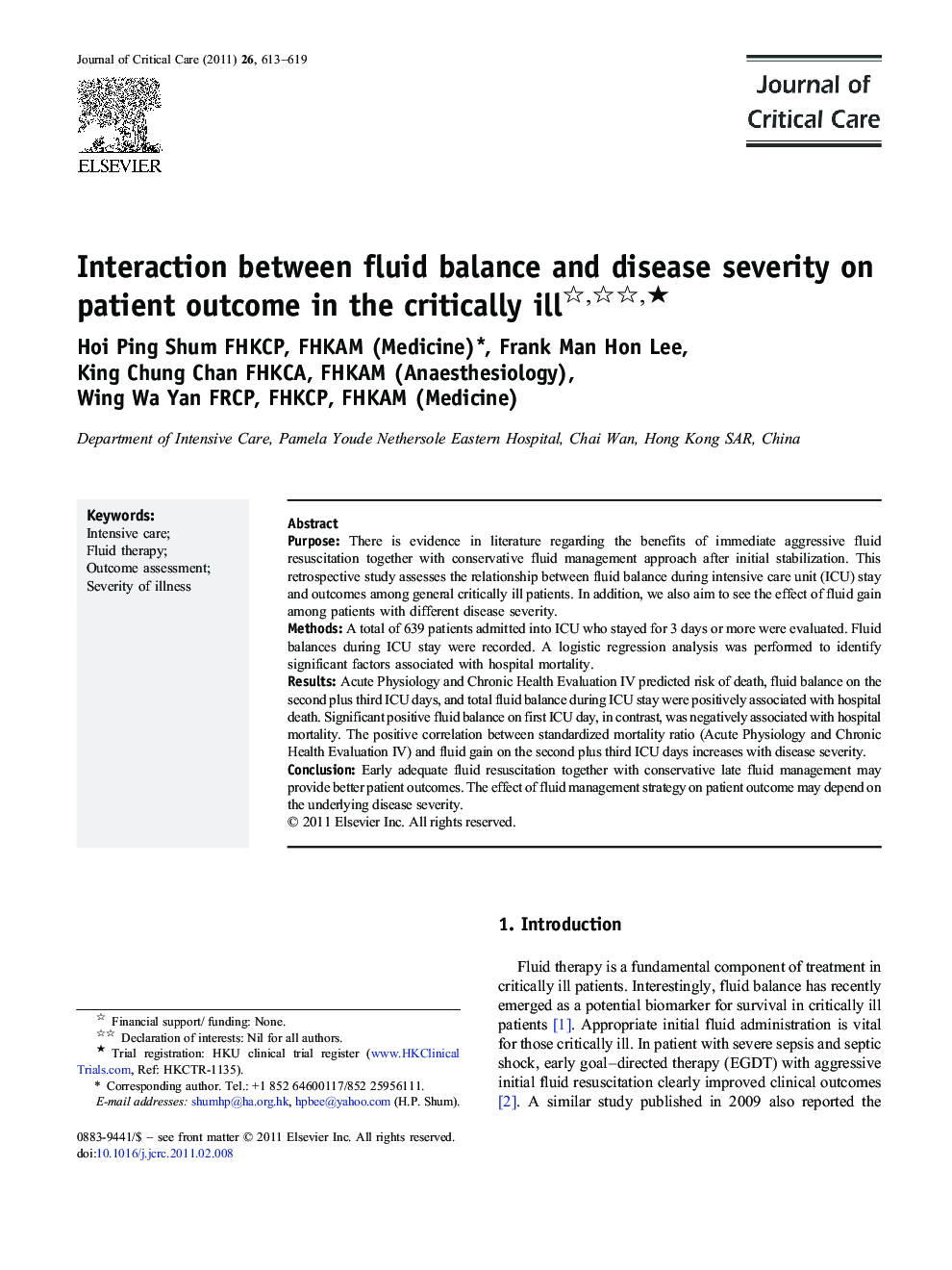| Article ID | Journal | Published Year | Pages | File Type |
|---|---|---|---|---|
| 2764830 | Journal of Critical Care | 2011 | 7 Pages |
PurposeThere is evidence in literature regarding the benefits of immediate aggressive fluid resuscitation together with conservative fluid management approach after initial stabilization. This retrospective study assesses the relationship between fluid balance during intensive care unit (ICU) stay and outcomes among general critically ill patients. In addition, we also aim to see the effect of fluid gain among patients with different disease severity.MethodsA total of 639 patients admitted into ICU who stayed for 3 days or more were evaluated. Fluid balances during ICU stay were recorded. A logistic regression analysis was performed to identify significant factors associated with hospital mortality.ResultsAcute Physiology and Chronic Health Evaluation IV predicted risk of death, fluid balance on the second plus third ICU days, and total fluid balance during ICU stay were positively associated with hospital death. Significant positive fluid balance on first ICU day, in contrast, was negatively associated with hospital mortality. The positive correlation between standardized mortality ratio (Acute Physiology and Chronic Health Evaluation IV) and fluid gain on the second plus third ICU days increases with disease severity.ConclusionEarly adequate fluid resuscitation together with conservative late fluid management may provide better patient outcomes. The effect of fluid management strategy on patient outcome may depend on the underlying disease severity.
